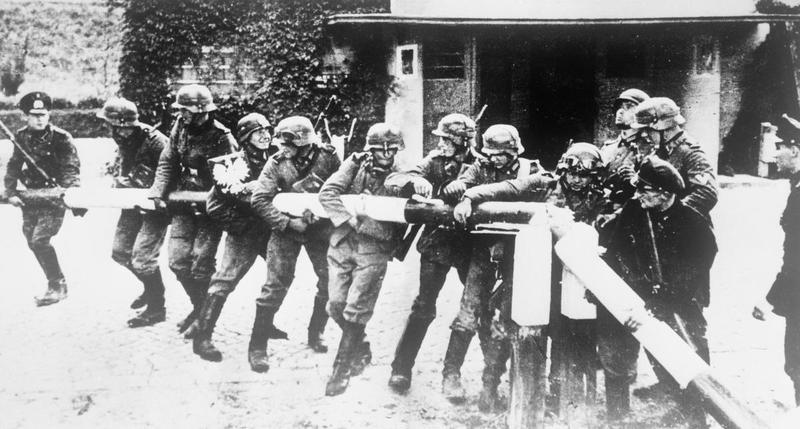Determining the day World War II started is not as simple as you might think. Let's start with the date that most Americans are taught in school.
December 7, 1941
The attack on Pearl Harbor is the event that brought the US into World War II and is the day that most people in the US think of as the start of World War II. Most Europeans find this amusing, offensive, proof of Americans' ignorance of history and/or a perfect example of American arrogance. There are actually a lot of good reasons to pick this date, but if you ask most Europeans they will give you the following date.
September 1, 1939, the Invasion of Poland
For Europe, this is the beginning of World War II. It was when Europeanblood was shed when people in Europe started to die and cities burned. The people of Europe spent just over two years fighting before the US officially joined the war. The problem with this date is that it shows as much of a Eurocentric bias, if not more so, than December 7th, 1941, shows a US-centric viewpoint. What about this date?
September 18, 1931, the Invasion of Manchuria
After the invasion of Manchuria came the invasion of China proper in 1937. The Chinese spent years fighting the Japanese before the war in Europe started. Events from this theater of war include, for example, the rape of Nanking, the use of chemical and biological weapons by the Japanese, comfort women and other atrocities that are often overlooked by westerners.
Other potential dates for the start of WWII.
- October 3, 1935, the invasion of Ethiopia by Italy. The failure of the League of Nations to stop Italy is often cited as the start of World II.
- March 7, 1936, the remilitarization of the Rhineland. In violation of the treaty that ended WWI, Germany reoccupied the Rhineland. This was the European powers' first real chance to stop Hitler.
- October 1, 1938, the annexing of the Sudetenland. When the United Kingdom and France handed the Sudetenland over to Germany the world lost the last chance to prevent the war in Europe.
When did World War II start?
I asked my wife that question, she gave me the best answer I have heard in a long time. She thought for a second and said, "that depends on where you were." Of course, history hates answers like that, so I have three dates I feel that are valid.
December 7, 1941
The attack on Pearl Harbor was the event that brought the last of the major players into the war and unified the war in Asia and the war in Europe into one globe-spanning World War. It also brought the United Kingdom into the war in Asia. Before that event, there was a war in Europe and a war in Asia. It is not a big stretch to say that on December 7th, those two wars became one World War. In this case, I say that December 7th was the end of the beginning of World War II.
September 18, 1931
Japan invading Manchuria was the start of the war between China and Japan. That was the first military conflict between the two of the nations that fought WWII. This seems as valid of a start date as any. The invasion of Manchuria could be seen as the beginning of the beginning of World War II.
My choice for the beginning of World War II is November 11, 1918.
The end of World War I was the start of World War II. In Europe, the decision to not totally defeat Germany combined with the failure to create a just peace was the reason for the rise of the Nazis. Germany did not feel that they were defeated, but rather that they were betrayed. Combine that with the oppressive war reparations that the allies imposed on Germany and you have the perfect conditions for the rise of the Nazi party. In the Pacific, Japan was on the side of the allies and easily captured many of Germany's colonies. The ease of Japan's victories inspired both the massive expansion of the Japanese navy and the rise of militarism in Japan during the 1920s and 1930s. The failure of the allies to truly end World War I did not just cause World War II but was also the reason that World War II ended the way it did. The US believed that a just peace was the only way to secure a lasting peace at the end of World War I. After much discussion, and finally the threat by France and the United Kingdom to not pay the loans the US gave the allies during the war, the US agreed to allow the punishment of Germany. At the end of World War II, the US and other allies were not going to accept anything but the complete defeat of Germany and Japan. After the war, the US worked hard to rebuild Germany and Japan, as well as the rest of western Europe and create a lasting peace and turn enemies into allies.


No comments:
Post a Comment